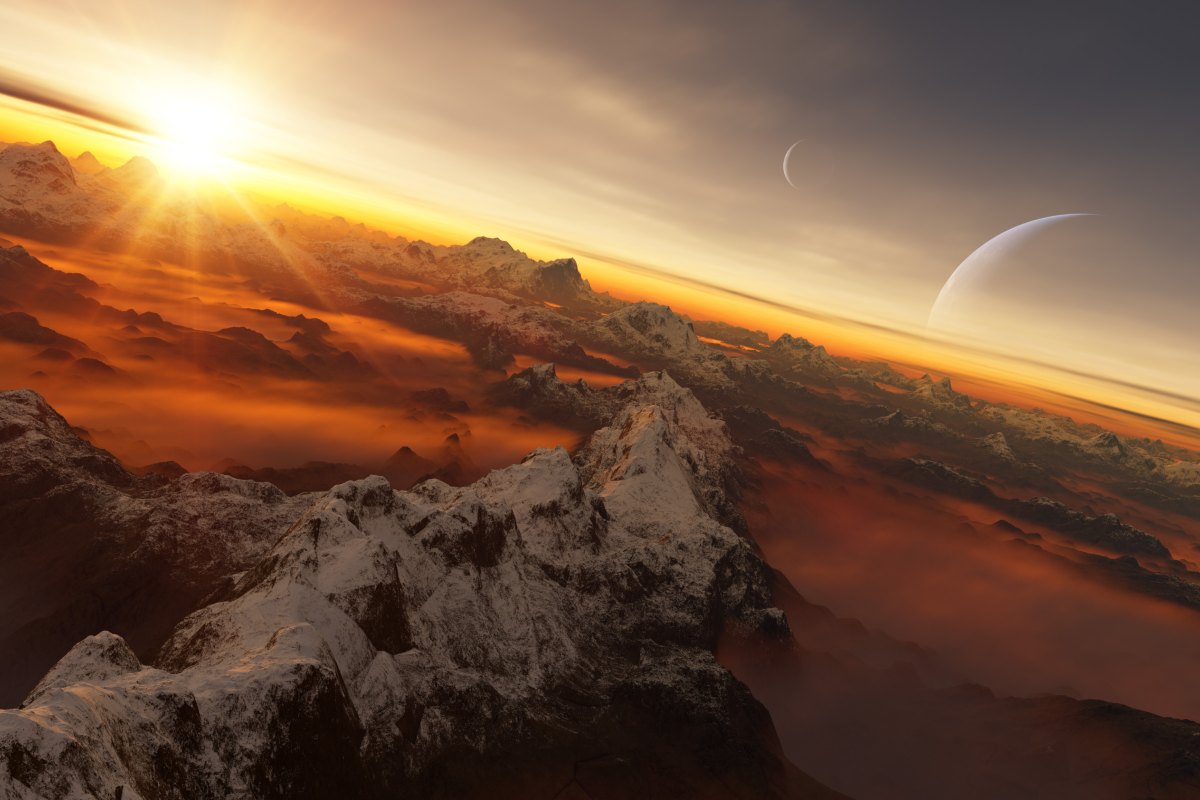
The NameExoWorlds global competition allowed any country in the world to give a popular name to a selected exoplanet and its host star—one of which is depicted here in an artist's rendering. Credit: IAU/L. Calçada
A months-long national naming contest has seen a star and exoplanet named in the Cree language, as the star HD136418 and its exoplanet HD136418b were renamed Nikâwiy and Awasis. The contest was part of the International Astronomical Union’s NameExoWorlds contest, where roughly 100 countries around the world were asked to name exoplanets and the stars they orbit.
“The original idea for the naming convention came from Amanda Green, a junior high science teacher in Alberta, and was then modified slightly by Wilfred Buck, a noted Cree educator who specializes in astronomy education,” said Sharon Morsink, associate professor in the Department of Physics and lead on the Canadian initiative, managed by the Canadian Astronomical Society (CASCA).
Nikâwiy translates into English as “my mother” and is pronounced NI-gah-wee (the ‘g’ is hard g as in “gate”). Awasis translates into English as “child” and is pronounced ah-wah-sis, explained Morsink. If new exoplanets orbiting Nikâwiy are discovered, these will be named after other family members in the Cree language.
More than 500 name suggestions were submitted to CASCA, and more than 700 people voted on the four finalists, selected by a panel.
Exoplanets are planets that orbit a star that isn’t our sun—with more than 4,000 discovered to date. In fact, so many have been discovered that scientists now believe that almost all of the roughly one hundred billion stars in our galaxy have at least one exoplanet orbiting them.
“We can determine the size of many of these exoplanets, their density, and how close it orbits its star. This gives us information about possible composition and how hot it might be on the surface of the planet,” said Morsink. “Awasis is probably similar to Jupiter, but orbits close enough to its star, Nikâwiy, that water could be in a liquid state.”
Naming these planets—and curiosity about astronomy—is an important way to engage with the universe around us, according to Morsink. “Astronomy is a great way to become more literate about many areas of science. Anytime someone learns a bit more about astronomy, they end up understanding a bit more about the world around them.”
Interested in astronomy? The University of Alberta Observatory hosts public viewing hours on Thursday evenings, and the RASC Observatory at the Telus World of Science is open on Friday, Saturday, and Sunday evenings. Learn more about the cutting-edge space research being conducted at UAlberta on our space hub..